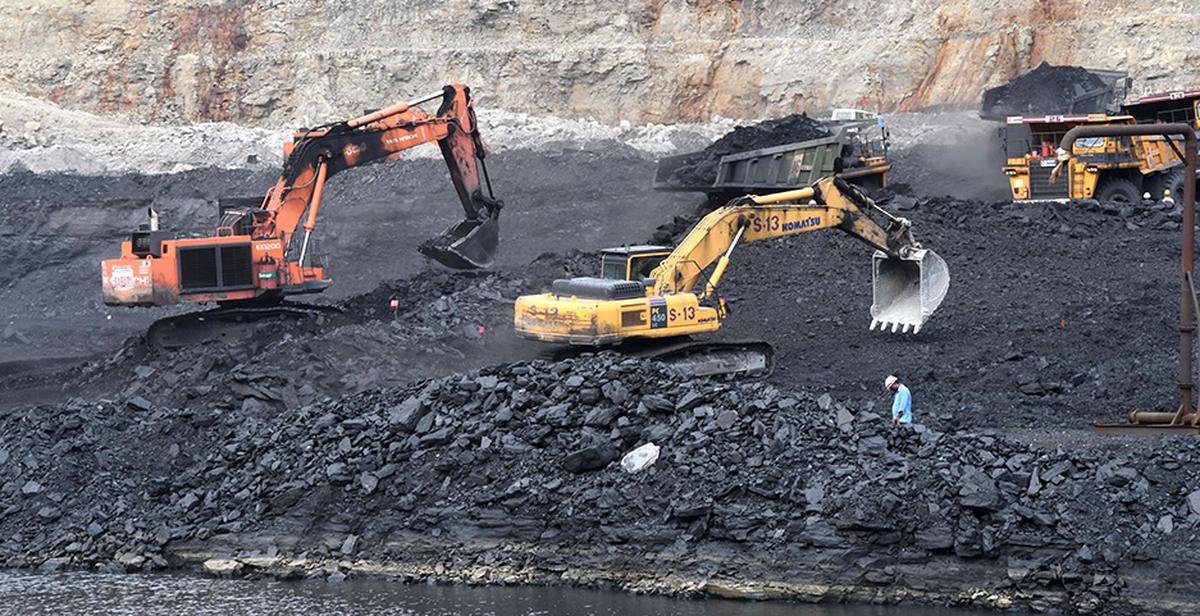While the narrative surrounding energy often prioritizes the burgeoning renewable sector, coal retains an undeniable influence on India’s development trajectory. Its significance extends far beyond its traditional role as an energy source, weaving itself into the fabric of various sectors and contributing to:

1. Transportation Backbone: Coal forms the lifeblood of India’s vast railway network, accounting for nearly half of its total freight income, exceeding Rs. 82,000 Crore annually. This translates to keeping the nation’s economic engine humming by facilitating the efficient and cost-effective transportation of essential goods across the country.
2. Revenue Engine for the Government: The coal sector acts as a significant source of revenue for the government, contributing over Rs. 70,000 Crore annually. This comes from various avenues like royalties, GST, and other levies. These funds play a crucial role in financing critical initiatives like socio-economic development and infrastructure projects, especially in regions where coal mining is a primary activity. This revenue generation helps bridge the gap and empowers the government to invest in crucial areas, fostering overall growth and development.
3. Employment Generation Powerhouse: Beyond its direct impact on energy production, the coal industry provides substantial employment opportunities, particularly in regions with active coal mining. Over 2 lakh direct employees are engaged in Coal India Ltd. and its subsidiaries, creating a ripple effect through contractual work, outsourcing, and related sectors like transportation and security. This job creation empowers individuals and families, contributing to improved living standards and economic stability in these regions.
4. Pillar of Financial Stability: Coal India Ltd. plays a key role in ensuring the financial stability of the government by consistently contributing to its finances through dividends. With an average of Rs. 6,500 Crore annually, the sector acts as a reliable source of income, providing resources for the government to invest in various development initiatives and maintain its fiscal health.
5. Catalyst for Social Development: The coal sector extends its influence beyond pure economics by actively engaging in social development through Corporate Social Responsibility (CSR) initiatives. Coal PSUs invest over Rs. 600 Crore annually in various social welfare programs, primarily focusing on healthcare, education, water supply, and skill development projects in coal-producing areas. These initiatives address critical social needs, empowering communities and fostering an environment conducive to inclusive growth and development.
6. Engine for Infrastructure Development: The coal sector actively invests in infrastructure development and resource optimization through significant capital expenditure, averaging Rs. 18,000 Crore annually. This investment fosters economic growth by creating jobs in the construction and related industries, while also ensuring the long-term sustainability of the sector by optimizing resource utilization. Additionally, this investment creates a foundation for future development by improving infrastructure in coal-producing regions.
7. Strategic Security Consideration: While India strives towards greater sustainability, it’s crucial to acknowledge the strategic importance of coal. As a domestically available resource, it mitigates dependence on external energy sources, offering a degree of security and control over energy needs. This is particularly important in the face of geopolitical uncertainties and volatile global energy markets.




